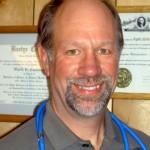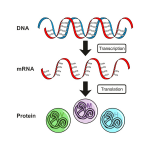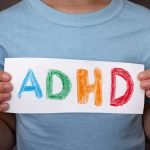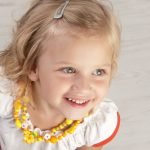Interview With Steve Morris, ND, AHG
Mark Swanson, ND
It is my distinct pleasure to share an informal interview with Dr Steve Morris—a great ND, an herbal expert, and a functional holistic pediatrician. This interview is about the physician, his clinical experience, healing philosophy, and the children he treats—with some insightful clinical pearls.
Welcome to the Expert Report, Dr Morris. Please share with us your educational background, memberships, and current position.
Dr Morris: I graduated from Bastyr University [Seattle, Washington] in 1986. Following graduation, I had an internship with Dr Bastyr for 2 years at his private practice in Seattle. In 1987, I joined Robert A. Anderson, MD, founding member of the American Holistic Medical Association, in private practice, and we have been practicing together ever since. I teach botanical and family medicine abroad and was adjunct professor of ethnobotany at Bastyr University. I am currently chairman of the board of the Student Rainforest Fund, a nonprofit educational foundation, and vice president of the American Board of Holistic Medical Foundation. Recently, I returned from Kenya, where I helped found a nonprofit pediatric clinic at the Wana Duma Children’s Foundation. I have a private practice in Mukilteo, Washington, with my son Aaron Morris, ND, and with Dr Anderson.
You’ve been a naturopathic pediatric specialist for many years and are now seeing a second generation of patients—kids of the kids you’ve treated. What’s that like?
Dr Morris: Being involved in a second generation of pediatric patients is a great honor. It speaks to the importance of continuity of care. I believe that instituting a holistic and preventative lifestyle from a young age enhances both physical and mental well-being. Naturopathic philosophy emphasizes the innate healing ability of our immune system, vis medicatrix naturae, and requires us to listen to what truly heals and to leave behind those influences that cause disease. Natural law is a great beginning point when addressing pediatric care. For example, early breastfeeding (especially colostrum) for a newborn is infinitely valuable in the development of a strong immune system.
Can you give us an example of how functional medicine is utilized in your practice with children?
Dr Morris: Functional medicine is a holistic viable treatment option for maintaining health in the pediatric population. It is especially useful in treating gastrointestinal; respiratory; ear, nose, and throat; and mental-emotional health. In this treatment approach, establishing a basis for health has to be holistic in nature. This means taking into account a nurturing loving environment, healthy whole foods lifestyle, fresh water, and air free of chemicals and pollutants. Asthma, otitis media, ADHD [attention-deficit/hyperactivity disorder], and autism, etc, may be more likely due to what we feed our children than the infectious agents that surround them. We now introduce to our children foods laced with chemicals, exposure to which the genetic code has no prior experience. These include genetically modified foods, food colorings, and preservatives. Allergies and sensitivities, especially to what Dr Bastyr referred to as the constitutional allergens—dairy, wheat, corn, eggs, and soy—must be evaluated and individually addressed. In our practice, we treat infants through the mother’s breast milk, and in the pediatric population we prescribe low-dose homeopathy, nutritional, physical, and botanical medicine and include diagnostic functional testing when appropriate.
Adults are the easy patients! They can tell you where, why, how, and when it hurts. It’s different with children. How does a 3- to 6-year-old tell you they feel sick or hurt?
Dr Morris: Basically through the parents, of course. We do physical exam, we have them point to the area, and we talk to the parents. When needed, we do blood, stool culture, and urine workup. We had a little one in today with a GI [gastrointestinal] flu. She was quite expressive and pointed right to where it was bothering her. I asked her mother about bowel movements and what she had eaten. You have to use parent-child interaction as well.
Parents often rely on their pediatrician for wellness guidance beyond the immediate medical care needs of their child. What quick advice do you have about lactation in mothers and breastfeeding?
Dr Morris: I mentioned a moment ago about the importance of colostrum in the newborn. Our recommended rule of thumb is to breastfeed until 2 years old. And as Dr Bill Mitchell used to advocate, nothing before 6 months of age except breast milk.
Allergy is always an ongoing panel discussion in pediatrics. What type of testing and treatments do you use? Do you use desensitization or immunotherapy?
Dr Morris: We utilize IgE and Ig4 sensitivity testing using a 96-antigen panel. We draw the blood here. I use Dr Alan Gaby’s 4-day rotation program and always include the foods from Dr Bastyr’s constitutional allergen list. I take the patient off the allergic foods for 90 days, then test back 1 food every 4 days. I do not do desensitization or immunotherapy protocols.
It seems every kid now has an asthma inhaler or 2 in their pocket. What is your functional medicine approach to childhood asthma?
Dr Morris: Nutrition plays a huge role these days. I also utilize breathing exercises, such as pranayama yoga breathing. Paul Sorvino’s breathing exercise book, How to Become a Former Asthmatic [New York, NY: William Morrow & Co; 1987], is also very good. Removing IgE inhalant allergens as much as possible is important. Taking the carpets out of the bedroom, reducing dog and cat dander, mites and molds, and installing an air filter can all help tremendously. I approach asthma from a lifestyle point of view. It all works quite well.
Children raised on a farm and around the barnyard seem to have the fewest allergies. Is this a good strategy to prevent early sensitization to common allergens?
Dr Morris: Absolutely. We raised our kids around soil, goats, chickens, beef, turkeys, alpacas, and other animals. Farm living is a great way for the initial exposure to build natural tolerance and allergy prevention.
Another “most common” childhood complaint is IBS. What’s your approach to treating kids with irritable bowel syndrome?
Dr Morris: Probiotics are very important to use in IBS. Stress reduction is huge also. Learning meditation and quiet time, studying martial arts, playing an instrument or being on a team sport, and having a primary responsibility for a pet are all important stress mediators to consider. Diet plays a huge role of course, high-acid foods being very detrimental for IBS. DGL [deglycyrrhizinated licorice] and marshmallow root [Althaea officinalis] are great as healers. Again, it’s the functional holistic approaches that I like.
Can toilet training be a cause of constipation in the toddler?
Dr Morris: Not if it is done properly unless of course a disease process is going on. When anxiety and mental-emotional issues are present, it can. Usually, this is a secondary effect of the parenting skills. It also depends on the symptom picture, prior history and nutrition, and so on. There are a number of great books that address the subject. Pediatric guidance books by Kathi Kemper, MD, and Robert Mendelsohn, MD, come to mind.
You are also a leading expert in botanical medicine. How about a few examples of your favorite children’s herbs or combinations that seem to work most consistently?
Dr Morris: When it comes to botanical medicine in the prevention and treatment of childhood diseases, the whole pharmacopoeia is at our disposal. Some of my favorite pediatric herbs are Sambucas nigra (elderberry), Glycyrrhiza glabra (licorice root), Lonicera cerajaponica (honeysuckle), Melissa officinalis (lemon balm), Zingiber officinale (ginger), Althaea officinalis (marshmallow), and Matricaria recutita (chamomile).
What is the flu season like around the office? Is there a favorite Dr Morris flu therapy?
Dr Morris: When treating influenza, we educate the parents of our patients to avoid high-sugar foods, including juices, dairy, citrus, bananas, and wheat. We recommend a diet high in nonsoy miso broths, soups, protein, vegetables, and teas. We supplement vitamin C and NAC [N-acetylcysteine] for appropriate immune support, including elderberry [S nigra], bee propolis, astragalus, garlic [Allium sativum], echinacea, and zinc. To manage fevers above 102.5°F, we recommend the wet sock treatment, hydrotherapy, and appropriate acute homeopathic prescribing. For chronic coughs, we prepare a combination of glycerite extracts from marshmallow root [A officinalis], licorice root [G glabra], slippery elm [Ulmus rubra], and ginger [Z officinale]. For gastrointestinal flu, we include prebiotics and probiotics, marshmallow root [A officinalis], and slippery elm [U rubra]. For severe diarrhea, we prescribe unripe bananas, aloe, and carob powder to prevent dehydration and sooth the GI tract. For otitis media, a strict elimination of dairy, simple sugars, and simple carbohydrates should be prescribed. If a bulging tympanic membrane is noted on physical exam, we use the time-honored chiropractic endonasal technique by gently massaging the meatus to the eustachian tube and apply lymphatic massage. It is imperative not to apply eardrops if there is a suspected tympanic perforation. With otitis, it is also important to institute a strong immune-supportive program.
Treating ADD/ADHD is daunting and challenging. Any clinical pearls to share would be welcome.
Dr Morris: Having worked extensively with attention-deficit disorder [ADD] and ADHD, we have found that the most important treatment protocol is centralized around reducing dietary sources of caffeine, simple sugars, replacement sugars, salicylates, food coloring, and additives. It is important to institute a diet high in proteins, vegetables, healthy fats, and complex carbohydrates in order to optimize the insulin response and brain function. When it comes to lifestyle management, reducing exposure to video games, television, and violent inappropriate movies helps reduce overstimulation. Like with IBS, with these patients it is also wise to include the stress mediators mentioned. To improve cognition, supplementation includes phosphatidylserine, DHA [docosahexaenoic acid], l-theanine, Melissa officinalis, and Gingko biloba in low dosage.
Do you treat autism?
Dr Morris: We do. They are very difficult cases, as you know. You have to employ a whole support team, not just with the parents. This includes extended families and friends. Nutritional and emotional support for the entire family, in addition to the child’s medical needs, is very important.
A new study this week reported that environmental factors, not just genetics, may play a much larger role in the cause of autism. Another study links a higher incidence if the mother took antidepressants. Where do you weigh in on these?
Dr Morris: I look at all. I believe environmental factors play a huge role. We should be concerned with cell tower, ultrasound emissions, and EMF [electromagnetic field] exposures, etc. I also think that emotional mirroring of the parent would be important. A lot has to do with social skills that are picked up by the parenting.
What are your thoughts on prescribing antibiotics?
Dr Morris: Only in exceptional cases should we prescribe antibiotics. The overprescription, overuse, and mismanagement of antibiotics has proved to be one of the many poor choices that modern medicine has offered these past 2 generations of children. We are now seeing drug-resistant pathogens for which allopathic medicine bears responsibility. Not only do these antibiotics create these resistant bacteria, their overuse undermines our own immune function.
Dr Bastyr was a great healer and personal mentor to you early in your medical career. You currently work alongside Robert Anderson, MD, one of the founding fathers of holistic medicine. How have they influenced your pediatric practice?
Dr Morris: After practicing for 25 years with their influences, I have come to the understanding that naturopathic medicine stands alone as a true healing modality. I believe naturopathy should be used as the primary treatment modality for all children. Dr Anderson didn’t see as many pediatric patients as Dr Bastyr did, which was many. Dr Bastyr treated all his children patients homeopathically and did chiropractic on them. When they were really ill, he used botanicals as well. I couldn’t have asked for 2 better teachers, and both were equally influential—Dr Anderson as a mentor on the evaluation and diagnostic end of things and Dr Bastyr on the treatments and prevention side.
Dr Morris, thanks so much for sharing about yourself and your pediatric practice. What does the future hold for you?
Dr Morris: At this point in time, I’m going to continue practicing. I love practicing with my son Aaron. I have 2 more sons going into this field also. I’m involved with farming, our animals, growing a vineyard and making wine, and raising bees. I plan to teach more, especially ethnobotany, which is a great love and study of mine.

Mark Swanson, ND, writes “The Expert Report” column, which is featured in NDNR. Dr. Swanson has over 25 years experience as chief medical advisor, research and technical consultant, and products formulations expert to leading practitioner brand supplement manufacturers. He is a former associate editor for the American Journal of Naturopathic Medicine, national product director, and published researcher. He is a pioneer graduate of Bastyr University, 1984. Dr. Swanson has his private practice specializing in Preventics Care and Functional Medicine, in Sequim, Washington. Contact: [email protected]





